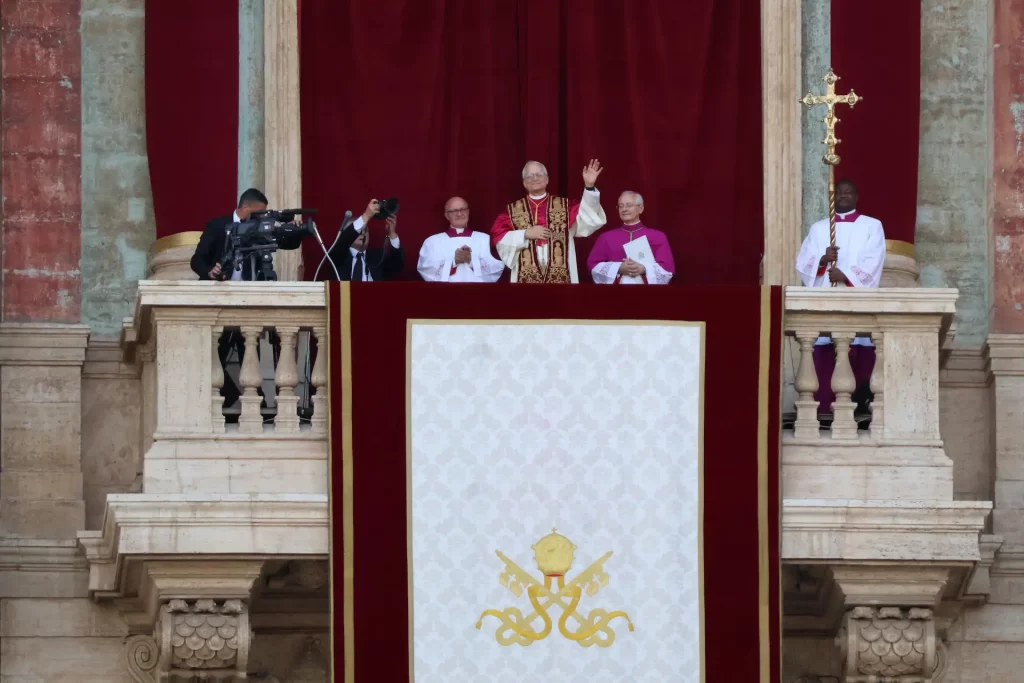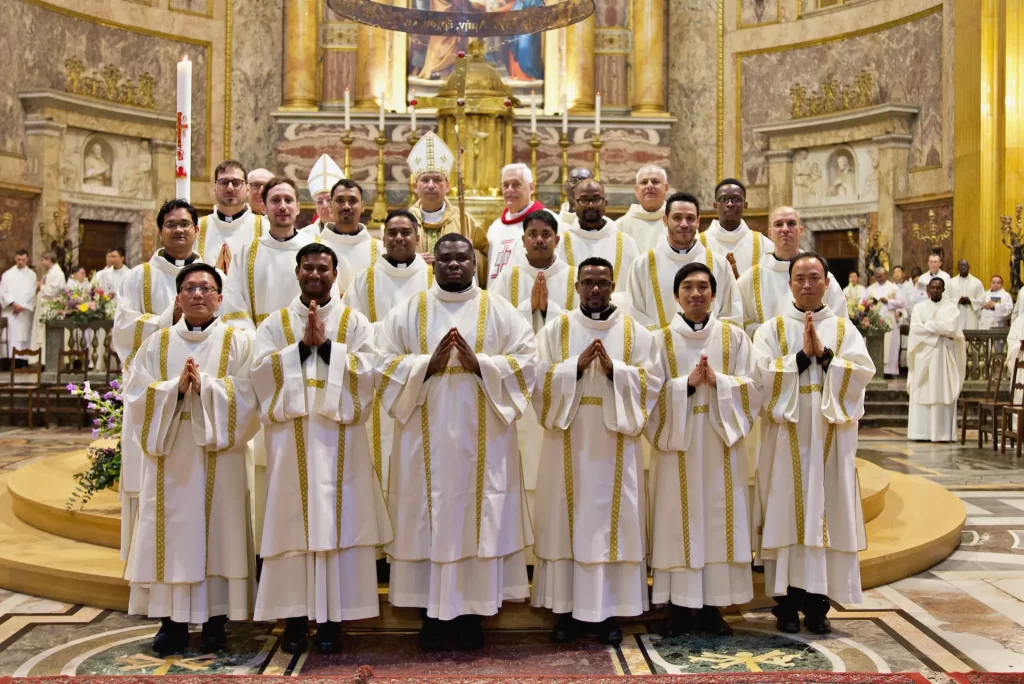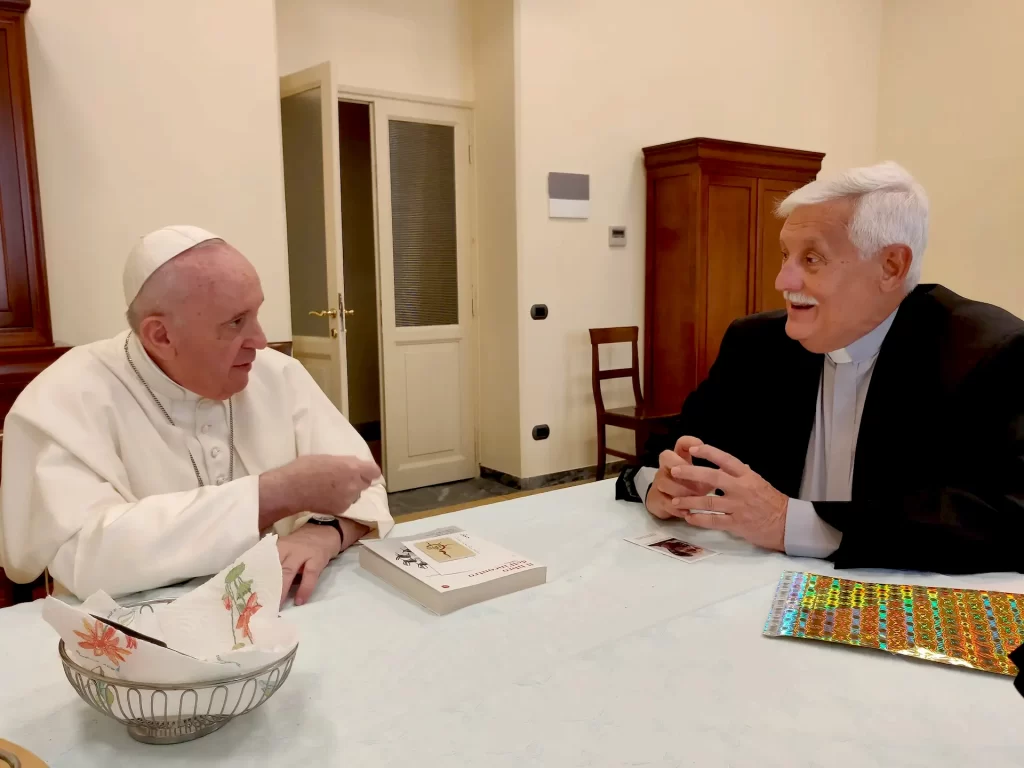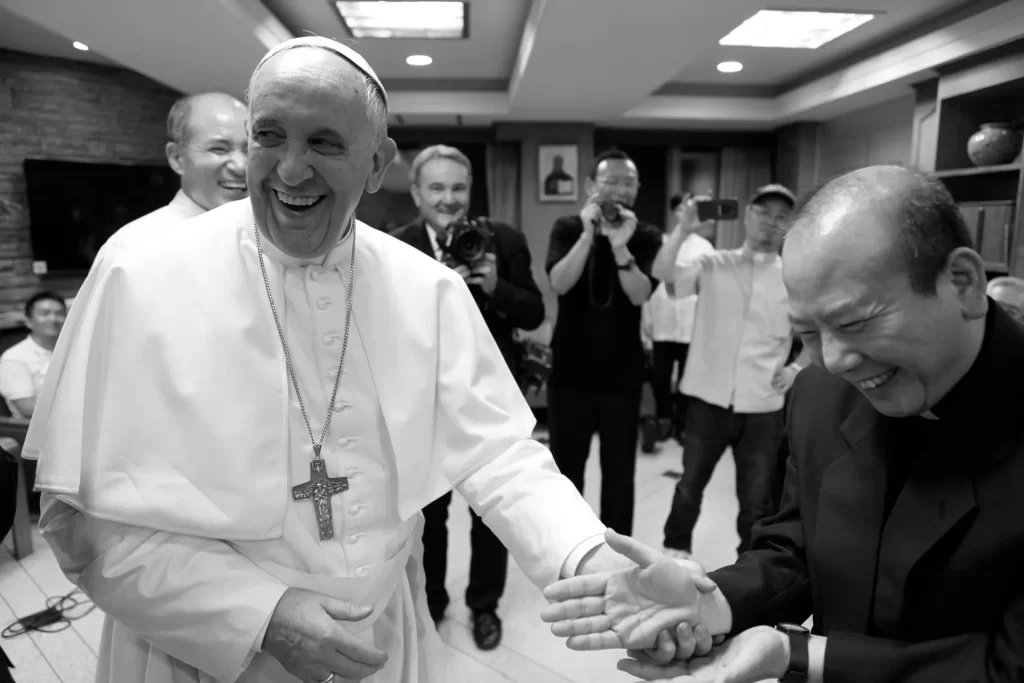During this month of September, many celebrate the World Day of Peace. At the same time we Jesuits and friends continue to give thanks that the Society of Jesus was restored 200 years ago. Both events would encourage us, despite seeming evidence to the contrary, that hope can be maintained even in the face of death.
In the story of the Prodigal Son (Lk 15: 11-32) the father says of his son that “he was dead and is alive; he was lost, and is found”. The Society of Jesus had been dealt a deadly blow in 1773. We were dead, but 41 years later, we began to breathe again. The Restoration of 1814 was a gift, an act of mercy. The Prodigal Son came home because he was lost and hungry. He was given food, a cloak a ring, but more than these, he found love and mercy and life at the hands of the same father on whom he had turned his back. Our Society had not earned or merited it, but we were brought back to life. We received a gratuitous gift from our merciful God. Although the actual anniversary of the Restoration was in August, Pope Francis chose the anniversary of the founding of the Society on September 27, 1540 to join with the Jesuits in a Thanksgiving litury in Rome, which will be telecast live by the Vatican.
What a tragic irony that the UN declared a World Day of Peace on September 7, 2001, just days before the destruction of the Twin Towers in New York. This month, while remembering that many people live with the threat of war and violence in Syria, Iraq, Congo and too many other places, we again celebrate World Day of Peace with a sense of irony – and also hope. To celebrate peace is an act of hope even in the face of death. In the face of all the harm that is being done to people today, in the wars in Myanmar, the harm done to women, men and children who are trafficked, to asylum seekers who are turned away or imprisoned, we cling to hope. We do not live that hope in vain, because it too is a gift of our merciful God.
To celebrate peace means to look into one’s own hearts and in so doing transform or banish whatever blame, fear or violence may be embedded there. To celebrate peace means to learn how to understand and forgive. To celebrate peace means to pray that we and all in our world may be led from death to life, from falsehood to truth, from despair to hope, from fear to trust, from hate to love, from war to peace. To pray for peace is to proclaim that life can overcome death.
In 1963, at the height of the Cold War, Pope John XXIII prayed in his encyclical ‘Pacem in Terris’: “May Christ inflame the desires of all people to break though the barriers which divide them, to strengthen the bonds of mutual love, to learn to understand one another and to pardon those who have done them wrong.” (#171).
At the time of the Suppression of the Jesuits in the late 18th Century, the then Fr General, Lorenzo Ricci, saw the Society as a sacrificial lamb, thinking that if we were suppressed, then the Church would be able to survive under the Bourbon rule. But though dispersed, many Jesuits continued to hope. Joseph Pignatelli in particular worked with great skill and energy to keep the Society alive and to keep his ageing Jesuit brothers together. Despite unbelievable obstacles and repeated setbacks, he did not give up hope. Through the mercy of God, the Society of Jesus was given life again by a decree of Pius VII on August 7, 1814.
Fr Mark Raper SJ
President, Jesuit Conference of Asia Pacific
September 24, 2014
Note: On September 27, Pope Francis will celebrate Vespers and Te Deum for the 200th anniversary of the Restoration of the Society of Jesus in the Church of the Gesù in Rome. The celebration will be telecast live by the Vatican from 4.50 pm Rome time at https://www.youtube.com/watch?v=u1tmyy3sl_g
To better follow the liturgy, download this booklet from the Roman Curia website.






